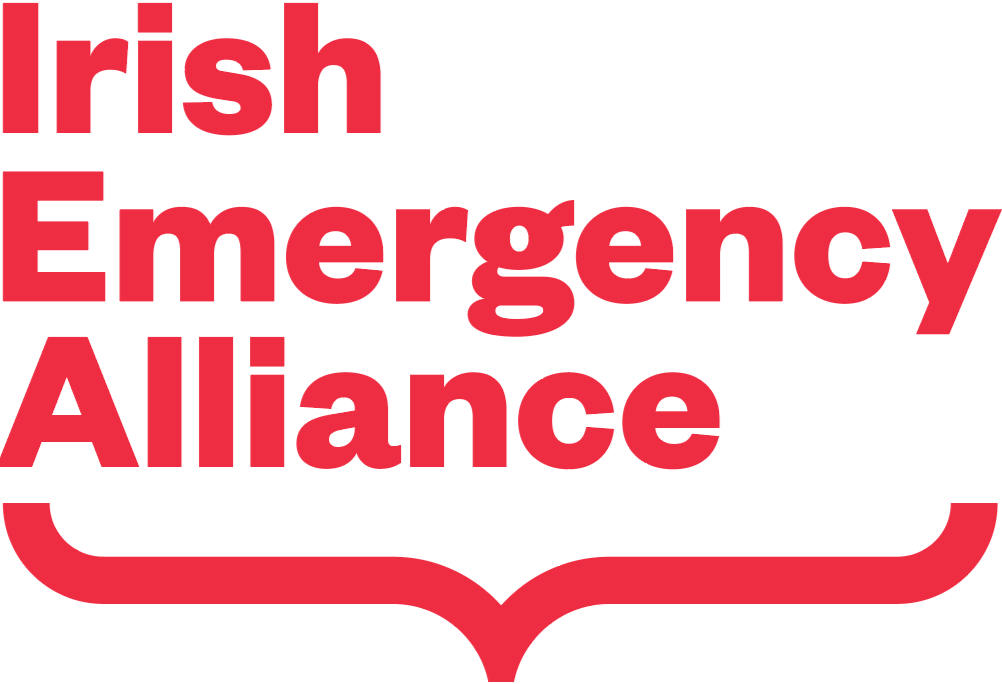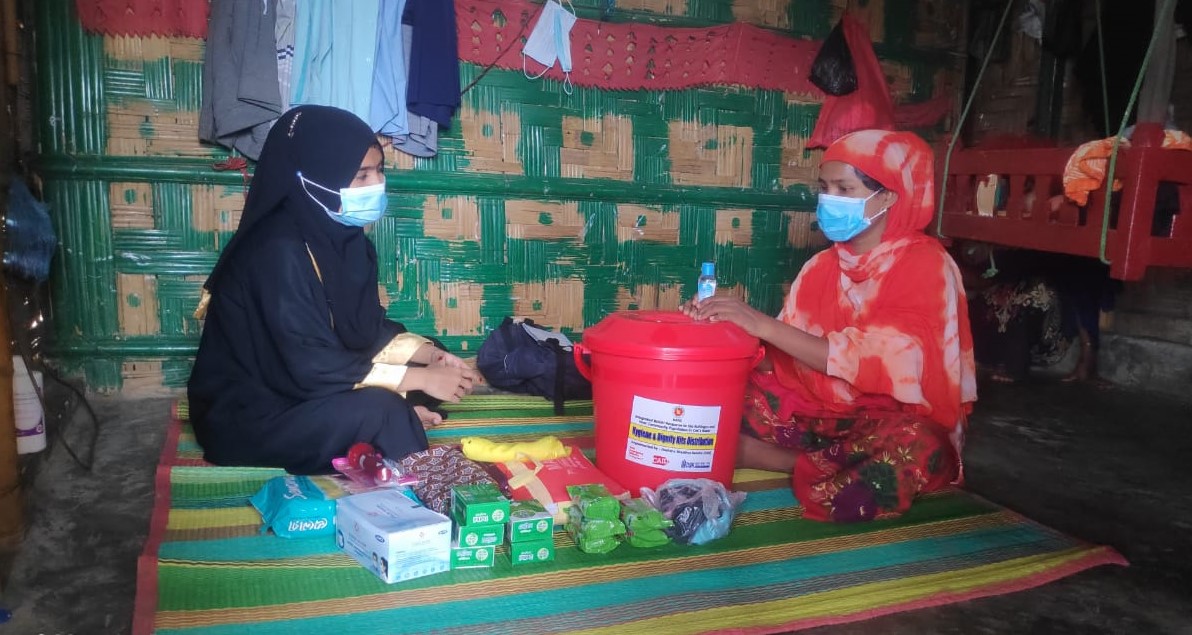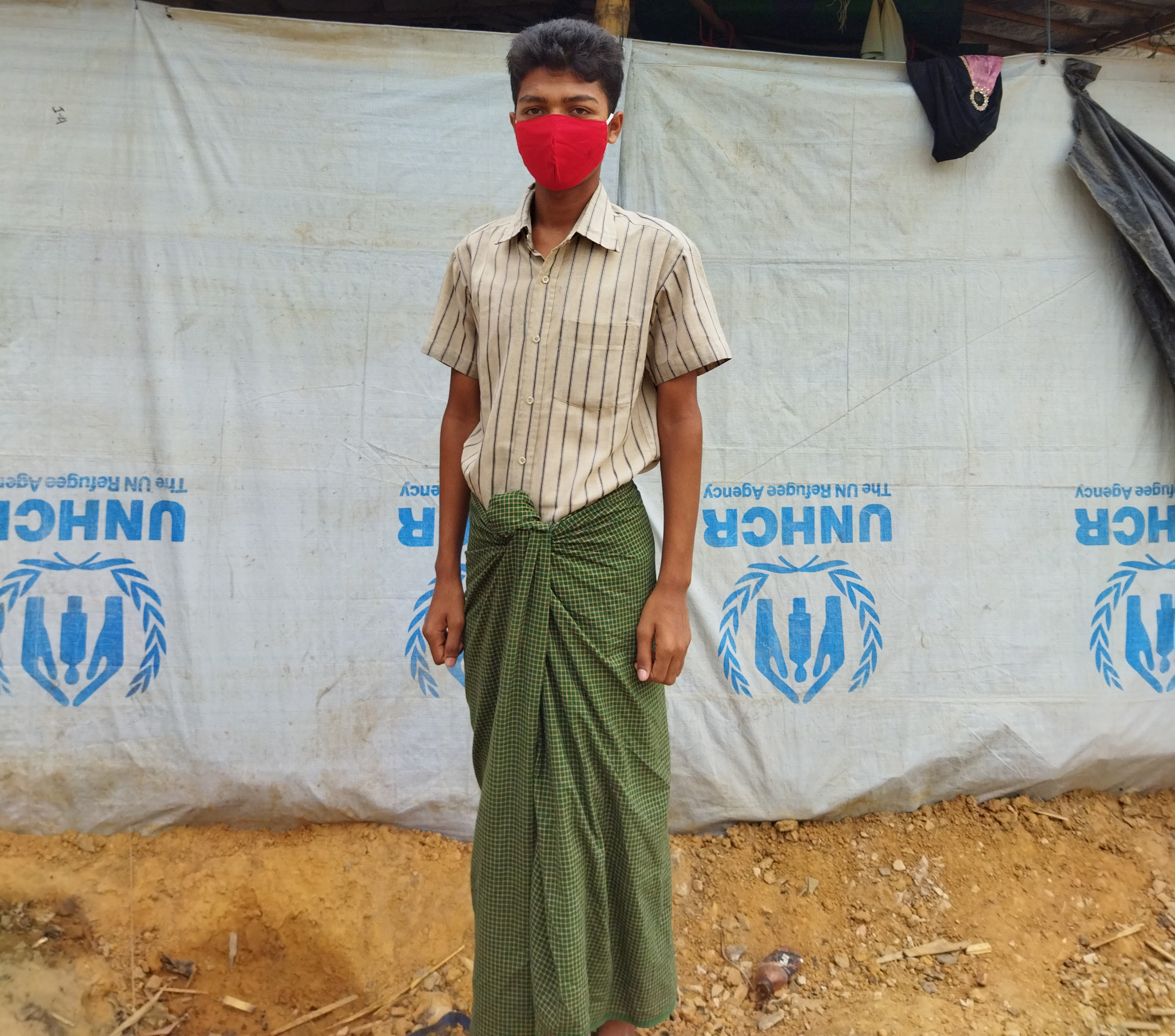There are 850,000 Rohingya refugees living in cramped living conditions across over 30 camps in Cox’s Bazar, Bangladesh. Fears remain that coronavirus will spread rapidly through the camps, which would have devastating consequences.
One third of people in the camps third lack water and soap in their homes and 80% of all households are already coping with at least one seriously ill family member. There have been more than a million cases of Coronavirus in Bangladesh and there remains a great fear that the virus could still sweep through the crowded refugee camps, which lack the health care to support large numbers of ill patients.
With funding from the Irish Emergency Alliance, Christian Aid’s local partner DSK handed out COVID-care kits to 750 Rohingya refugee families to help prevent the spread of coronavirus in two camps. The kits contained soap, facemasks and water containers for collecting and storing water.
Christian Aid’s local partner also trained 20 community-based workers so they could share vital information on coronavirus to 2,200 Rohingya refugees and local people during 100 small group sessions. The sessions raised awareness about symptoms of coronavirus and how to avoid catching and spreading the virus. Information leaflets were also handed out to all participants in the awareness-raising sessions.
To help prevent the spread of coronavirus, community-based workers also disinfected communal areas such as showers, toilets and waste management sites five days a week.
We learned a lot from the training.
Mohammad ran a dry fish business and also had a farm in Myanmar before he became a refugee. Since 2017 he has lived with his wife in Camp 14 for Rohingya refugees in Cox’s Bazar, Bangladesh.
Mohammed took part in one of the awareness raising sessions. He said: “we learned a lot from the training and now follow the hand washing technique, keep a social distance, wear a mask and avoid crowded areas.”


